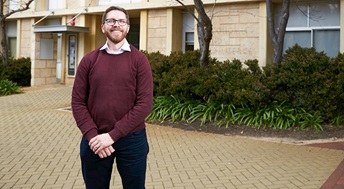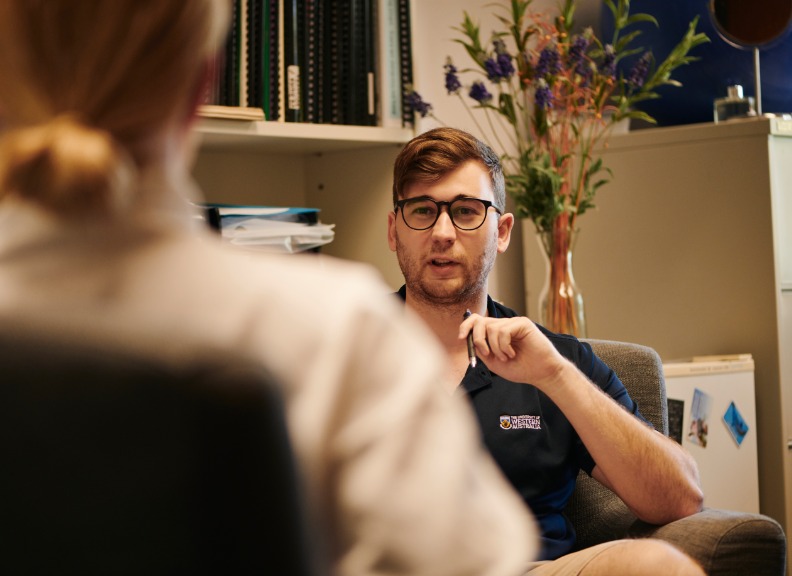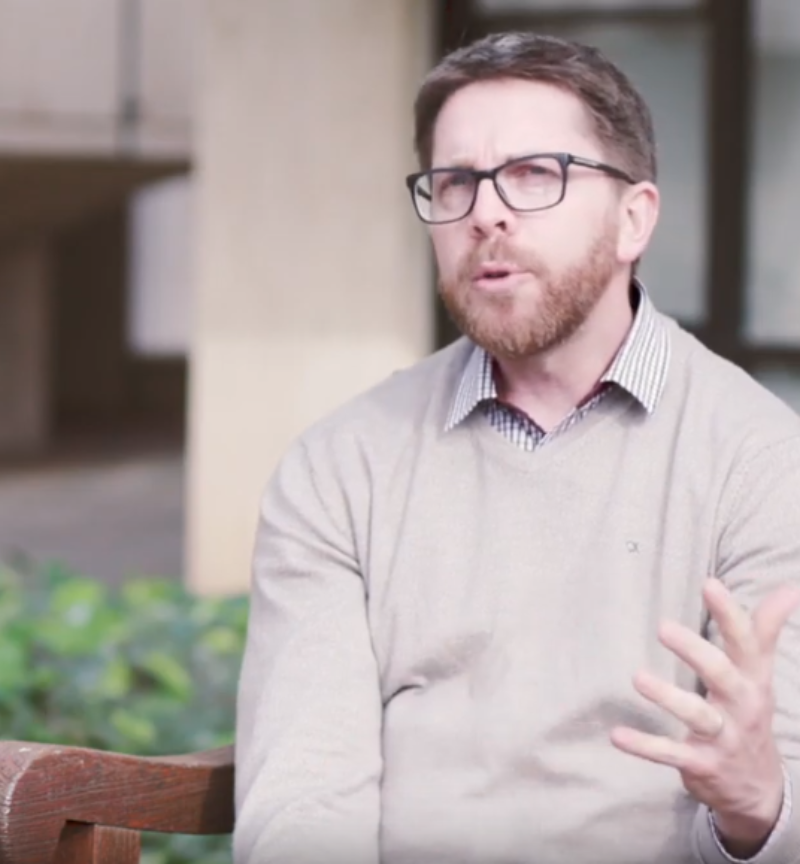Undergraduate
Criminology
Contact us
Address
Student Central
The University of Western Australia (M355), 35 Stirling Highway, Perth, Western Australia 6009
Telephone
131 UWA (131 892)
International
(+61 8) 6488 1000
Hours
Frequently asked questions
Events you may be interested in
Show more eventsCareers and further study
This course opens up a world of future study pathways and career opportunities.
Career Pathways
Our Bachelor of Criminology and Criminal Justice and single Criminology major in the Bachelor of Arts or Philosophy (Honours) have been designed to maximise your employability by focussing on the specific, practical skills that employers in industry are looking for.
You'll be encouraged to question current practices and find ways for improvement while developing a broad range of policy and practice-relevant skills, including the capacity to think critically, integrate theory and research into practice, and communicate effectively in written and oral forms, which will maximise your employability in the criminal justice and government sector.
Career opportunities include:
- Criminologist
- Community development worker
- Police / correctional services officer (sworn or unsworn member)
- Policy adviser at the local, State, or Commonwealth level
- Health / justice researcher
- Criminal / social justice advocate
- Youth worker
- Working in loss-prevention and risk management in the private sector
4 reasons to do Honours
- Boosts analytical, critical, problem solving skills and project management.
- Regarded highly by future employers in wide range of sectors: business, law, government, semi-government.
- Leads to higher earnings and better career advances.
- Increases admission chances of highly-sought graduate degrees domestically and internationally, including the Juris Doctor and the Master of Business Administration (MBA).
Further Study
A major in Criminology can lead to further study at honours and/or postgraduate level. You could choose to apply for courses such as the Juris Doctor, Graduate Diploma in Law, Master of Industrial and Organisational Psychology or Master of Social Work.
Doctor of Philosophy and Master of Clinical Psychology
Fees and scholarships
Domestic Student Fees
For Commonwealth-supported places, student contribution amounts are charged by unit, based on area of study. For a fee estimate, go to the Fee Calculator and select “I want to price my units”. Fees are subject to annual indexation. Refer to the Handbook to identify the units required. More information on how fees are calculated.
Scholarships
Scholarships are available to students from a diverse range of backgrounds, including academic achievement, financial need, educational disadvantage, leadership and community service, artistic or sporting achievements, and being from a rural or remote area.
Cost of living
International Student Fees
Onshore international students are charged an annual course fee, charged per credit point at a rate dependent on the course in which the student is enrolled. Annual course fees are calculated based on an annual study load. Check the handbook to confirm the annual study load for your course.
Find out more about international student tuition fees and visit the fee calculator for the relevant course fees.
Fees are subject to annual indexation.
Scholarships
Scholarships are available to students from a diverse range of backgrounds, including academic achievement, financial need, educational disadvantage, leadership and community service, artistic or sporting achievements, and being from a rural or remote area.
Cost of living
Admission requirements
The University of Western Australia welcomes applications from international and domestic school-leavers. If you’re interested in studying one of these majors, find out the admission details below.
Admission requirements
English competency
English is the language of instruction and assessment at UWA and you will need to meet the English language requirements of the University to be eligible for a place.
Minimum overall IELTS score of 6.5, with no band less than 6.0.
How to apply
Apply through TISC
- Log in to the TISC website
If you’re a Year 12 student studying a WACE course at a WA high school or a pathway program, you are already automatically registered with TISC. - Select your preferences
You can choose up to six preferences when you apply through TISC. You should list your preferences in order from your most desired course onwards; this way you’ll have plenty of options to get into UWA. - Lodging your application
You’re almost there! After answering a few questions, you’ll need to make a declaration about your application. - Application processing fee
Your TISC application is lodged once you’ve completed the payment. For more information on fees and payments, visit the TISC website.
Course details
Our single Criminology major is offered in the Bachelor of Arts and Bachelor of Philosophy (Honours), or as a second major in most other bachelor's degrees. This major gives you the opportunity to learn about core aspects of the role that criminology plays in understanding and responding to crime, including developing a critical understanding of current criminal justice practices in Australia.
About the course
Quick details
- Available
- Perth (Crawley campus)
- Albany (Regional campus)
- Full-time
- Part-time
- On-campus
- Semester 1, Semester 2
- Undergraduate
- MJD-CRIMN
- 3 years (BA);4 years (BPhil [Hons])
4 reasons to do Honours
- Boosts analytical, critical, problem solving skills and project management.
- Regarded highly by future employers in wide range of sectors: business, law, government, semi-government.
- Leads to higher earnings and better career advances.
- Increases admission chances of highly-sought graduate degrees domestically and internationally, including the Juris Doctor and the Master of Business Administration (MBA).
You may also be interested in these courses
Associate Professor Jade Lindley

Associate Professor Jade Lindley is a Criminologist at the UWA Law School whose research focuses on transnational crimes and their intersection with international law. Jade is particularly interested in transnational organised crime, with a focus on the criminal motivations to offend and the responses to control these crimes. Jade has worked in state and federal level government in Australia and as a consultant for various international organisations around the world.
“My research intersects with pertinent global issues relating to human, border, environmental and food security, several of which are within the scope of the UN’s Sustainable Development Goals.”
What you'll learn
- An understanding of the breadth of issues in contemporary criminology and the criminal justice system.
- How to critique crime and criminal law.
- Transferable creative thinking, teamwork and problem-solving skills.
Western Australia's premier Law School
The UWA Law School is ranked in the top 150 law schools in the world for Law and Legal Studies (QS 2025). You will join and contribute to 90 years of excellence: we are the first law school established in WA and the fifth oldest in Australia.
Our graduates include a Prime Minister, a Governor of Western Australia, State Ministers, Justices of the Supreme Court of WA, a Young Australian of the Year, Rhodes Scholars, and more.
While we have a long and proud history, we're also a closely-knit, creative and progressive Law School, fostering critical thought, ethical scholarship and practice, a deep connection to our Indigenous past and present, and supportive student culture based upon wellbeing and inclusion.
Course Structure
Our undergraduate degrees offer you a broad range of options allowing you to combine subjects in a way that matches your career goals and personal interests.
Popular combinations
Professor Hilde Tubex

Professor Hilde Tubex is the Director of Criminology at UWA. Her areas of expertise are comparative criminology, Indigenous peoples and the criminal justice system and criminalised women. Prior to joining UWA in 2011, Hilde worked at the Department of Corrective Services in WA as the Team Leader of Research and Evaluation. Before migrating to Australia, Hilde was an adviser to the Belgian Minister of Justice and the Council of Europe.
"Being a Criminologist is still the job of my dreams. It is challenging because there are no simple solutions to complex problems in crime and punishment, but trying to explain and do something about it is what gets me out of my bed in the morning”.
4 reasons to study Criminology
1. It's interdisciplinary and varied: in the Criminology major you'll take units from a wide range of areas, including Law, Psychology, Finance, Anthropology and Sociology, Geography and History.
2. It's fascinating: learning about crime and criminal law is interesting. From understanding the criminal justice system to tracking the history of crime and punishment in Britain, you'll be constantly surprised and intrigued along the way.
3. It's practical: whether you're majoring in Criminology itself, or taking it as a second major, it works well in combination with Psychology, Law and Society and History in particular.
4. It's well regarded by employers: you'll develop the capacity to think critically, integrate theory and research to practice, and communicate effectively in written and oral forms, all of which are excellent skills to have upon graduation.
Your degree options
This major is offered as a degree-specific, or first, major for these degrees. It is also offered as a second major in our other bachelor's degrees.
Professor Joe Clare

Professor Joe Clare is a Criminologist at the UWA Law School, and is also an award-winning lecturer and researcher. He has worked in applied research roles for universities and governments in Australia and Canada, utilising his quantitative research expertise to contribute to policy and practice decisions in a range of criminal justice contexts. His research interests include applied evaluations, crime statistics, policing, crime prevention, and academic misconduct.
"I’m committed to evidence-based decision-making for emergency first responders and focused on using administrative data to make prevention-focused policy and practice decisions."
Take a second major
Employers seek graduates with a breadth of knowledge from multiple complementary areas. Have you considered taking a second major to increase your skills and experience?
Criminology pairs well with these other majors:
- Anthropology and Sociology: study culture, social behaviours and systems of meaning in human societies
- Law and Society: pair a knowledge of crime with a holistic understanding of legal systems.
Dr Hayley Passmore

Dr Hayley Passmore is a lecturer in Criminology at the UWA Law School and has qualifications in child health, criminology and psychology. Hayley is dedicated to supporting the health of those in adult corrections and youth justice facilities, particularly those who are neurodivergent. Hayley has received international recognition for her research and its impact, including receiving a 2020 Churchill Fellowship, and was a 2022 WA Finalist for Young Australian of the Year.
“I’m passionate about using evidence to improve the health and wellbeing of people who are involved in the justice system – because prison health is public health.”


 Law and Society
Law and Society  Business Law
Business Law 

 Bachelor of Arts
Bachelor of Arts
 Bachelor of Philosophy
Bachelor of Philosophy